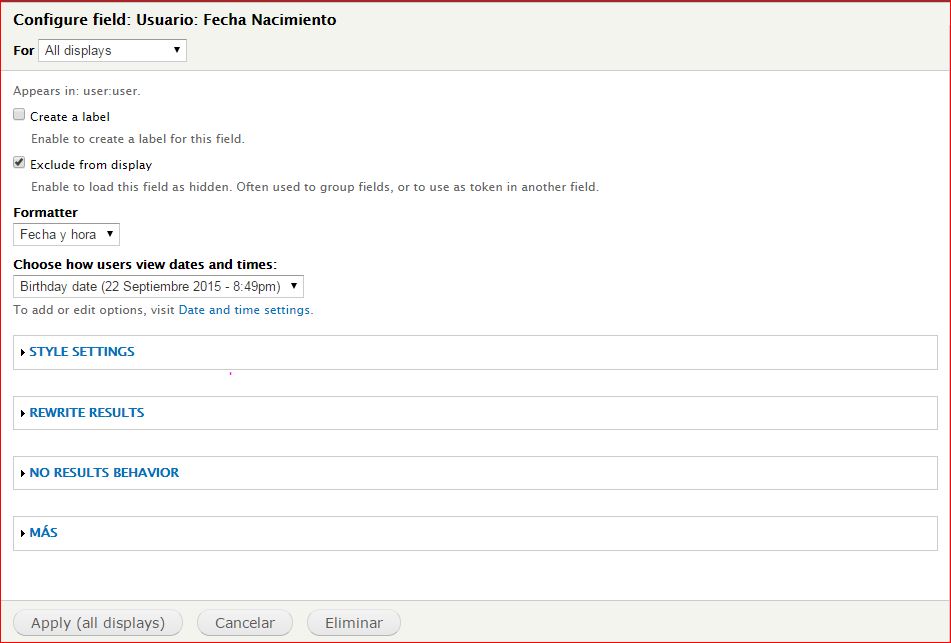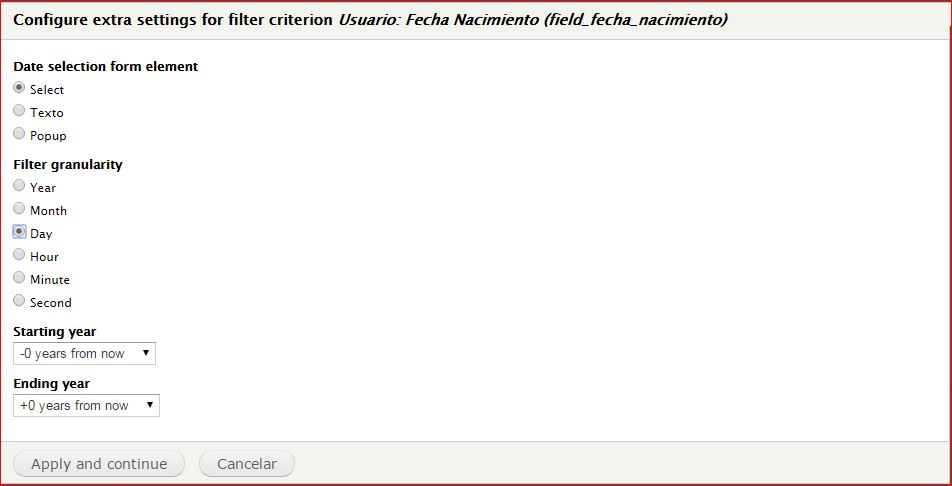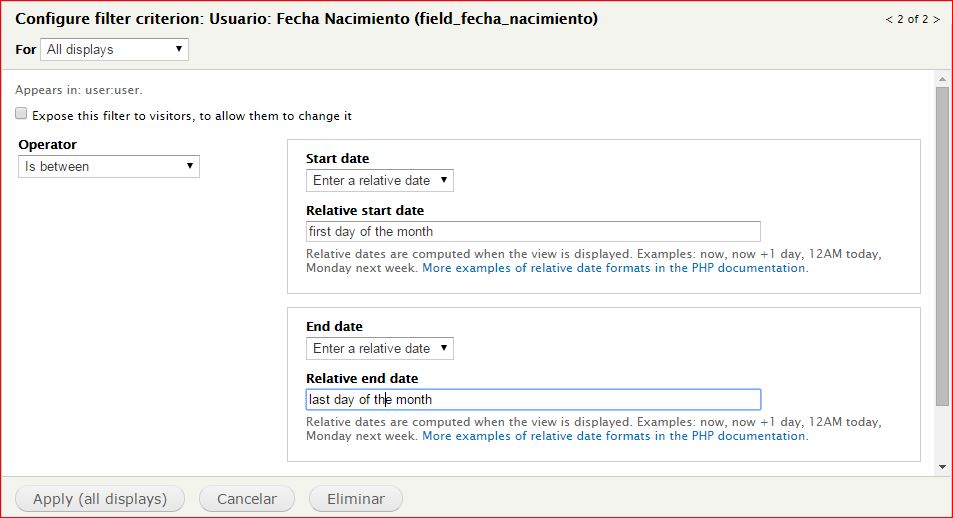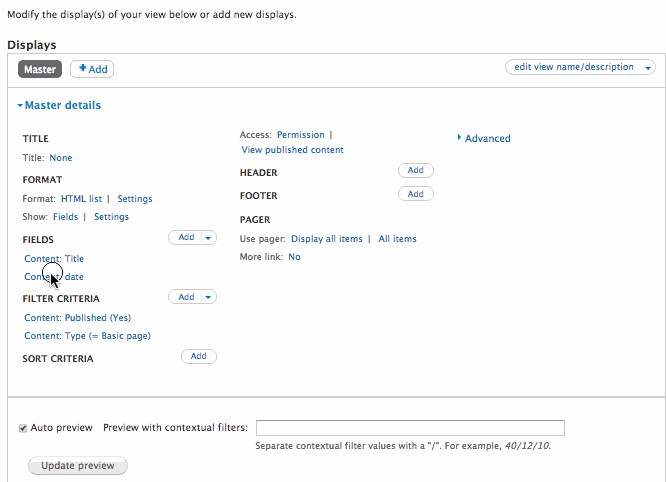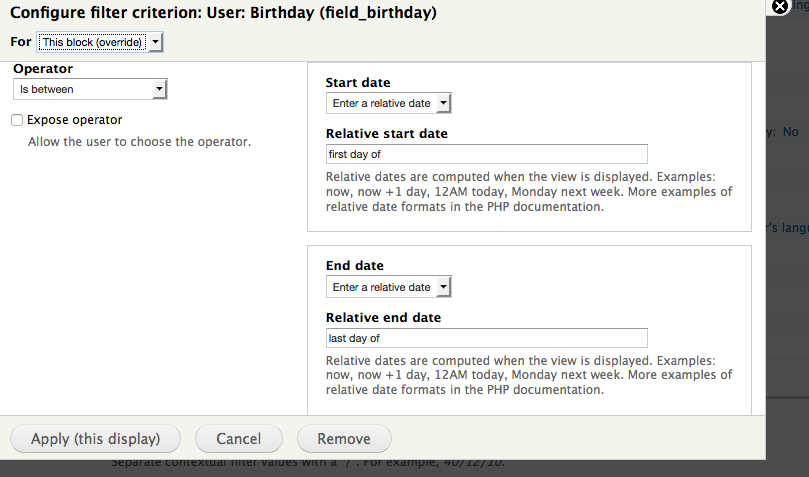I have a date field in my view and when I try to filter between the first and the last day of the month there is no result in my view preview.
Here is my settings. This filter is because I need to compare the born date from all the registered users and print only those who have the value between first and last day of the month.
Here are the screen shoots of my views settings:
First here is my date field settings:
Then the filter settings:
And finally set the filter option to get the result between first and last day of the month:
This is what I've tried till now without success. Can someone help me in this? I don't want to use a module for this. I only need this filter works.

